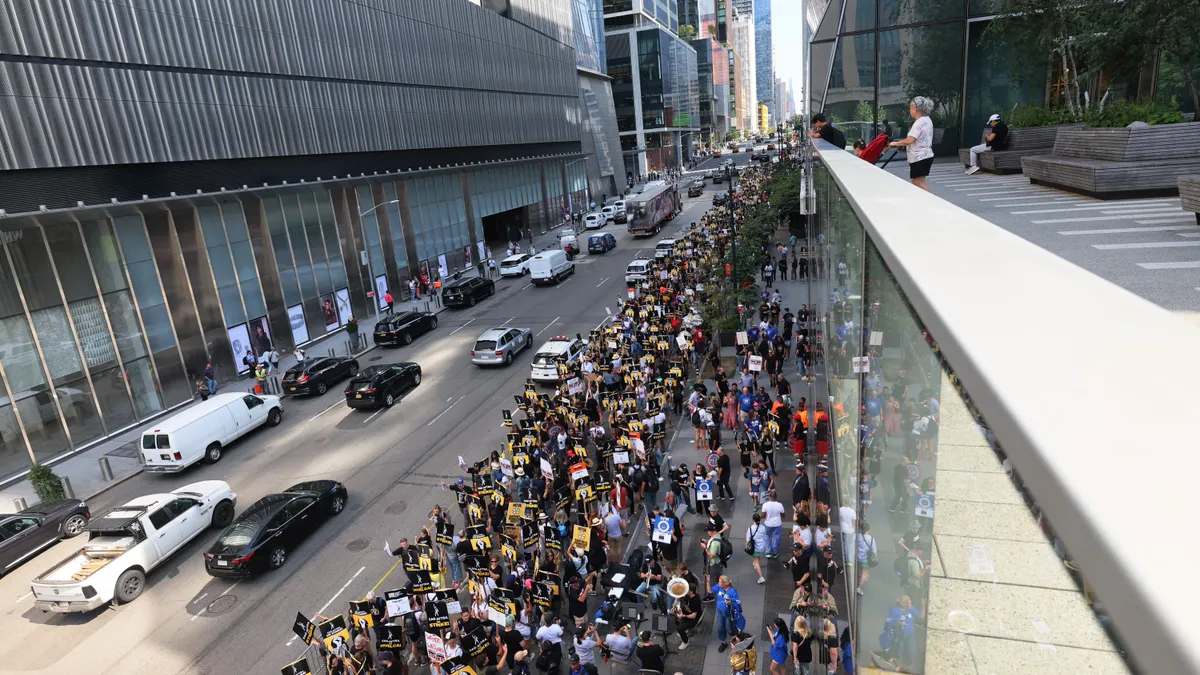A 2019 National Labor Relations Board decision did not modify the standard that its general counsel must meet in order to show that an employer’s adverse employment action is motivated by union or other protected activity, NLRB said in a separate decision published Monday that marked yet another labor law reversal in recent weeks.
Four years ago, the then-Republican majority board held in Tschiggfrie Properties that in order for the NLRB’s general counsel to establish animus towards an employee’s protected activity, the general counsel must establish a causal relationship exists between the activity and the employer’s adverse action. Per the 2019 board, Tschiggfrie Properties clarified the Wright Line standard for analyzing adverse employment actions.
However, NLRB’s current Democratic majority said in the Monday decision regarding Intertape Polymer Corp., that the clarification provided in Tschiggfrie Properties “was unnecessary and subject to misinterpretation.”
Specifically, the general counsel in Intertape Polymer suggested that the 2019 decision “added a requirement that the General Counsel must show animus specific” to protected activity, NLRB said. The board added that while it acknowledged the potential that parties may misinterpret its Tschiggfrie decision, that decision did not alter the Wright Line standard.
“To the extent Tschiggfrie has been interpreted as modifying or heightening the General Counsel’s Wright Line burden, we reject that interpretation, and we reaffirm that the General Counsel’s burden under Wright Line remains the same as it has been throughout decades of Board jurisprudence,” NLRB said.
In a press release announcing Intertape Polymer, the board said it analyzes whether the evidence in the record, as a whole, supports a reasonable inference that protected activity was a motivating factor in an adverse employment action. Either direct or circumstantial evidence can support a finding of animus, it continued.
NLRB Chair Lauren McFerran emphasized that in Tschiggfrie, the board “unnecessarily” sought to clarify the Wright Line standard and did “more harm than good.” The chairperson added, “Because the decision has caused significant confusion for parties before the Board, we take this opportunity to make clear that this longstanding bedrock of Board law remains unchanged.”
Marvin Kaplan, the board’s lone Republican member, dissented. Kaplan wrote that while he agreed that Tschiggfrie did not modify the Wright Line standard, he disagreed with the majority’s finding that the 2019 decision caused confusion for parties for the board.
Intertape Polymer is the latest in a series of events that have reversed, or otherwise revisited, decisions made by the Trump-era board.
That list includes NLRB’s Cemex Construction Materials Pacific, LLC decision — in which the board partially revived a 1949 framework for determining when employers must recognize and bargain with unions absent a representation election — as well as a final rule aimed at removing barriers to union elections.
Union activity remains an active area of employment law entering the final quarter of 2023. Last week, auto workers for industry giants General Motors, Ford and Stellantis voted to authorize a strike in the event that the companies are unable to come to terms on a new labor agreement with United Auto Workers, Automotive Dive reported.














